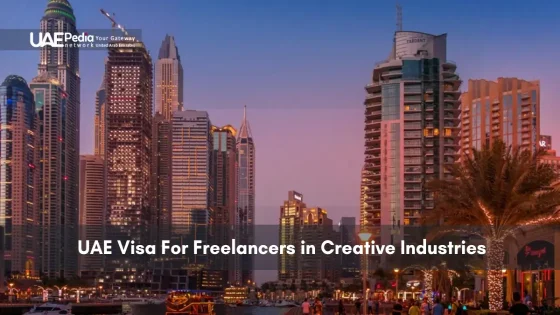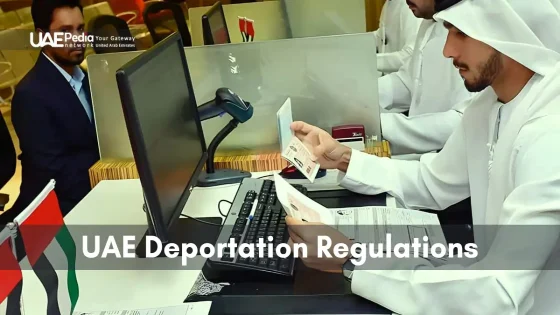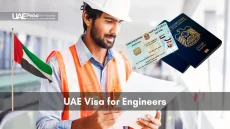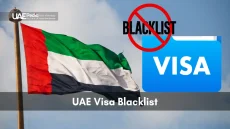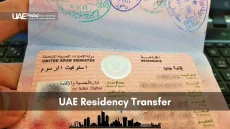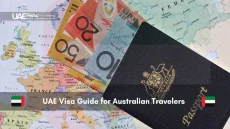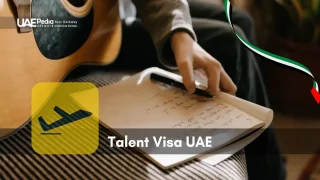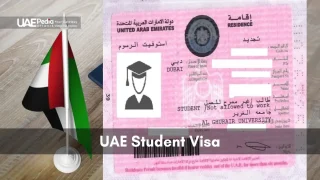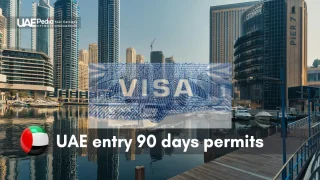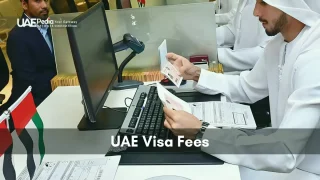Did you know over 70% of Dubai’s workforce thrives in sectors blending innovation and culture? This isn’t Silicon Valley 2.0—it’s a sandbox where filmmakers, designers, and digital storytellers shape tomorrow’s creative landscape. We’ve watched photographers trade cramped studios for sunlit coworking spaces in Al Quoz, and animators collaborate with local heritage experts to reimagine Bedouin tales through VR.
The region’s business-friendly ecosystem offers more than just tax-free income (though that 0% personal tax rate certainly sparkles). From average processing timelines faster than ordering artisanal coffee to specialized free zones like Dubai Media City, the infrastructure exists to turn your side hustle into a sustainable career. But where do you start?
This guide walks through every step—document checklists even seasoned pros overlook, free zone perks beyond the obvious, and cultural insights that’ll make your transition smoother than a sunset dune drive. You’ll discover:
- Why creative professionals choose Emirates hubs over traditional European capitals
- How to align your skills with emerging opportunities in AR content and cross-cultural storytelling
- Real cost comparisons between mainland and free zone setups (spoiler: it’s not just about desk fees)
Pack your portfolio—we’re mapping your path from application anxiety to that first shukran from a local client.
Overview of UAE Freelance Opportunities and Creative Industries
Imagine sketching storyboards in a café where Arabic calligraphy meets augmented reality murals. This isn’t fantasy—it’s Tuesday in Dubai Design District. The city’s creative economy grew 12% last year, with independent talent driving 40% of media projects. We’ve seen illustrators partner with AI startups, and podcasters turn Bedouin poetry into immersive soundscapes.
Gold Rush 2.0: Talent Over Oil
Free zones like Dubai Media City now house over 3,000 creative businesses. Why the surge? Three reasons:
- Zero income tax lets you reinvest earnings into cutting-edge tools
- Cross-cultural projects pay 2-3x global rates for bilingual creators
- Networking events blend gallery openings with venture capital pitches
| Industry | Growth (2023) | Top Skills Needed |
|---|---|---|
| Immersive Media | +18% | AR/VR storytelling |
| Cultural Curation | +22% | Heritage digitization |
| Eco-Design | +29% | Sustainable materials |
Your Studio Without Borders
One graphic designer we know landed clients in Riyadh and Mumbai within six months—all while working from beachside co-working spaces. The secret sauce? Free zones handle 90% of legal paperwork, so you focus on perfecting that logo animation.
Later sections will map your path from concept to residency card. But first, let’s explore which visa type aligns with your creative practice…
Understanding the UAE Freelance Visa Landscape
Think of your residency journey as choosing between art mediums—each option offers distinct textures for shaping your career canvas. Three main pathways dominate the scene:
Brushstrokes of Permission
Free zone permits act like sketchpads: lightweight, affordable ($1,500-$4,000 annually), and perfect for testing ideas. They include health insurance and let you operate across designated creative hubs. The 5-year green visa functions as a mural commission—requiring proven skills (portfolio reviews) but granting stability and family sponsorship rights.
| Visa Type | Duration | Ideal For | Key Requirement |
|---|---|---|---|
| Free Zone Permit | 1-3 years | Early-career creators | Business plan + portfolio |
| Green Visa | 5 years | Established artists | Degree or 5+ years experience |
| Remote Work Visa | 1 year | Digital nomads | $3,500 monthly income |
Palette of Qualifications
Whether you’re a muralist or metaverse designer, these elements blend into approval:
- Insurance: Mandatory medical coverage ($200-$800/year)
- Proof of craft: 6+ client contracts or exhibition records
- Education: Degrees help but aren’t mandatory if your portfolio wows
One animator we know secured her residence visa using Instagram Reels as proof of expertise—regulations now recognize digital footprints as valid credentials. Always check current document lists; last month’s update added NFT sales records as acceptable income proof.
Step-by-Step Process for UAE visa for freelancers
Picture this: your residency application as a mixed-media collage—layered, vibrant, and requiring precise materials to stick. Let’s assemble your masterpiece without the sticky situations.
Blueprint of Essentials
Start with your foundation: passport copies (valid 6+ months), proof of income (bank statements or client contracts), and a portfolio showcasing 6+ projects. Graphic novelist Layla K. swears by including behind-the-scenes sketches: “They demonstrate your creative process better than finished pieces alone.”
| Document | Purpose | Pro Tip |
|---|---|---|
| Establishment Card | Legal work authorization | Request digital delivery to save 3 days |
| Health Insurance | Mandatory coverage | Compare annual vs. monthly plans |
| Bank Statements | Financial stability proof | Highlight recurring client payments |
Calendar of Action
Most creative professionals complete these steps in 4-6 weeks:
- Secure your establishment card through free zone portals (2-5 business days)
- Submit permit application with notarized documents
- Complete biometrics at approved centers
Photographer Raj V. shared his timeline hack: “Schedule medical tests on Fridays—clinics are quieter.” Watch for seasonal delays during Ramadan or major festivals when processing slows by 15%.
Remember: Approval isn’t a finish line. Successful applicants use their waiting period to network at design fairs and Arabic language workshops. As one digital nomad told us, “Your permit lets you live work here, but relationships let you thrive.”
Navigating Free Zones and Creative Industry Hubs in Dubai
Picture your creative practice as paintbrushes – some thrive on vast canvases, others excel in precise strokes. Dubai’s specialized zones act as curated studios where ideas flourish through tailored infrastructure and like-minded communities.
Where Vision Meets Velocity
Dubai Media City buzzes like a 24/7 innovation lab. Home to 3,000+ media ventures, it offers:
- Soundproof podcast booths beside AR production studios
- Monthly “Creator Collisions” mixing filmmakers with tech founders
- Exclusive access to GITEX and Dubai Film Festival events
Meanwhile, Design District’s sunlit workspaces host fashion incubators and NFT galleries. Graphic artist Yasmin R. shares: “I landed three client referrals before unpacking my Wacom tablet – the energy here’s contagious.”
Permission to Play
Choosing a free zone isn’t just about desks and permits. Consider:
| Zone | Best For | Perk |
|---|---|---|
| Dubai Airport Free Zone | Quick-turnaround projects | 24/7 cargo access |
| Dubai Studio City | Film & animation | Soundstage discounts |
| Sharjah Publishing City | Writers & translators | ISBN services |
Freelance permits here slash setup costs by 60% compared to mainland options. One indie game developer told us: “Our free zone handled trademark registration while we coded – multitasking magic.” With 48-hour licensing and built-in networking, these hubs remove barriers between your craft and its audience.
Exploring Visa Options: Green, Mainland, and Remote Work Visas
Choosing your residency path feels like mixing pigments—each hue offers unique shades of stability and flexibility. Let’s break down three popular choices shaping creative careers across Emirates hubs.
Green Visa: The 5-Year Canvas
This option acts like premium-grade paper: durable, versatile, and ideal for building layered projects. At 5,000–7,500 AED annually, it grants:
- Family sponsorship without employer ties
- 90-day grace periods between projects
- Eligibility after proving 3+ years of freelance work
Graphic novelist Amir S. shared: “The green visa let me launch a mural collective while securing my kids’ schooling—stability fuels creativity.”
Mainland vs Free Zone: Brushwork Differences
Mainland permits (12,000–20,000 AED upfront) require local sponsors but offer citywide client access. Free zones skip sponsorships but limit operations to their campuses. Compare renewal rhythms:
| Option | Renewal Cost | Frequency |
|---|---|---|
| Mainland | 3,500–5,000 AED | Every 2–3 years |
| Free Zone | 1,800–4,000 AED | Annually |
Remote work visas (1-year terms) suit digital nomads craving desert灵感 without long-term commitments. Early-career creators often blend free zone permits with occasional mainland projects—hybrid strategies that balance cost and reach.
Preparing Essential Documents for Your Application
Your application package works like a perfectly baked baklava—each layer needs precise ingredients to achieve that golden crunch. Missing one element? The whole structure crumbles. Let’s ensure your paperwork stacks up flawlessly.
Building a Strong Portfolio and CV
Think of your portfolio as a highlight reel showing range and depth. Include 8-12 projects demonstrating:
- Cultural adaptability (e.g., Arabic typography blends)
- Technical evolution (early drafts vs. final outputs)
- Client testimonials with measurable impacts
Photographer Noura A. shares her winning formula: “I organize my PDF portfolio like a gallery walk—six spreads maximum, each telling a story from concept to client handoff.” For CVs, use reverse-chronological format with skills matrices matching Emirates market demands.
Document Checklist for a Successful Submission
Authorities process 85% of applications within 14 days when documents are airtight. Use this table as your quality control checklist:
| Document | Purpose | Pro Tip |
|---|---|---|
| Passport Copies | Identity verification | Notarize translations of non-English stamps |
| Proof of Income | Financial stability | Highlight retainer contracts |
| Portfolio | Skill validation | Include process sketches |
| Educational Certs | Qualification proof | Stack most relevant first |
| Previous Residence Permits | Compliance history | Scan both front/back |
Holders of existing permits should note: Renewals require 30% fewer documents if you’ve maintained clean records. Organize files as LASTNAME_DOC-TYPE_DATE.pdf—this small step cuts review time by half. Double-check forms for typos; one misspelled address delayed a client’s approval by three weeks last quarter.
Cost Breakdown and Financial Considerations for Freelancers
Budgeting feels like mixing audio tracks—too many layers create chaos, the right balance makes magic. Let’s decode the numbers behind creative residencies, from shiny new permits to sneaky renewal fees. You’ll need to account for four main elements: permit fees, medical tests, Emirates ID, and insurance—all while keeping that 0% tax advantage singing harmony.
Understanding Permit and Visa Fees
Your work permit acts as backstage access to creative gigs. Current rates:
| Visa Type | Initial Cost | Renewal | Best For |
|---|---|---|---|
| Free Zone Permit | 7,500 AED | 3,200 AED/year | Project-based creators |
| Green Visa | 2,800 AED | 1,100 AED/year | Long-term visionaries |
| Remote Work | 1,000 AED | Annual renewal | Digital nomads |
Pro tip: Free zones often bundle medical insurance with permits—Dubai Design District’s package saves 1,200 AED annually. Always ask about hidden admin charges; one animator saved 800 AED by switching from paper to digital submissions.
Budgeting for Renewals and Additional Expenses
Treat renewals like quarterly client check-ins. Annual must-pays:
- Emirates ID: 370 AED
- Medical Fitness Test: 320 AED
- Basic Health Insurance: 1,200+ AED
Photographer Samira T. shares her hack: “I set aside 15% of each payment for renewal funds—like a tax jar, but way more fun.” Consider apps like YNAB or Excel templates to track multiple due dates.
Don’t forget living costs! Coworking spaces average 800 AED/month, while networking events range from free gallery openings to 250 AED conference tickets. The golden rule? Budget 20% above initial estimates—those desert灵感 moments deserve financial breathing room.
Lifestyle and Business Opportunities in Dubai
Dubai’s energy tastes like karak chai—sweet, spiced, and impossible to sip slowly. Between sunrise beach jogs and midnight gallery crawls, this city feeds creative souls while fueling their careers. Let’s unpack how to thrive here beyond the workspace.
Housing, Banking, and Networking Essentials
Finding your nest here mirrors choosing canvas sizes—options range from compact studios in Al Quoz (4,500 AED/month) to loft-style apartments in Dubai Hills (9,000+ AED). Pro tip: Many buildings waive 1-2 months’ rent for annual contracts. Banking? Digital-first options like Liv. cater to mobile-savvy creators, while traditional banks offer multi-currency accounts perfect for global clients.
| Area | Avg Rent (1BR) | Perks |
|---|---|---|
| Jumeirah Village | 5,200 AED | Artist communities |
| Business Bay | 7,800 AED | Walkable workspaces |
| Al Serkal Avenue | 6,500 AED | Gallery discounts |
Networking here isn’t stiff handshakes—it’s collaborating on murals at Design Week or brainstorming AR concepts over camel milk lattes. Graphic design collectives host weekly “Sketch & Sip” meetups where portfolios bloom into partnerships. As local illustrator Nadia R. says: “Your best client might be the barista who admires your iPad doodles.”
Holders of a freelancer visa gain golden perks: sponsor family members after securing housing (minimum 1BR required) and access to subsidized co-working memberships. Recent updates let creatives apply for entry permits while overseas—no more last-minute scrambles.
The city’s 24/7 pulse means your next big break could come during a desert yoga retreat or while taste-testing fusion dishes at Time Out Market. Tech meets tradition here: VR studios hire Arabic calligraphers, and sustainable fashion startups seek bilingual storytellers. Ready to blend your craft with this kaleidoscope?
Staying Compliant: Legal and Regulatory Considerations
Navigating legal requirements here feels like mastering a traditional dhow sail—know which ropes to pull, when to adjust, and how to ride the winds of regulation smoothly. Creative professionals thrive when they balance innovation with adherence to local frameworks.
Local Visa Regulations and Compliance Tips
Abu Dhabi and Dubai approach enforcement differently—think tailored suits versus haute couture. The former emphasizes cultural preservation in creative projects, while the latter prioritizes rapid digital innovation. Both require:
- Updated freelance permits matching your current services
- Immediate reporting of address changes (within 30 days)
- Clear separation between personal and business banking
Airport free zones like Dubai Airport Free Zone demand extra vigilance. Photographer Karim L. learned this firsthand: “My equipment imports got delayed until I showed my free zone trade license copy—always carry digital backups.”
Maintaining status involves more than renewals. Consider these annual must-dos:
- Attend mandatory visa on arrival awareness sessions if traveling frequently
- Submit project reports to free zone authorities every six months
- Audit client contracts for compliance with media content laws
Dubai’s creative hubs recently introduced AI-powered compliance checkers—upload documents for instant feedback. As designer Leila M. advises: “Treat regulations as creative constraints—they’ll push you to innovate smarter, not harder.”
Final Thoughts on Embracing the UAE Freelance Journey
Your creative compass just found true north. The Emirates hubs offer more than permits and workspaces—they’re launchpads where stories get told in pixels, fabrics, and soundwaves. We’ve seen animators turn Instagram clips into residency approvals, and illustrators barter skills for gallery space in Alserkal Avenue.
Remember the essentials: portfolios that breathe life into process, medical tests scheduled on quiet Fridays, and free zones that handle logistics while you craft. One graphic designer doubled her rates within a year by blending mainland flexibility with free zone affordability.
This adventure isn’t just about tax benefits or sunlit desks. It’s joining a community where Bedouin poetry inspires VR installations, and your next collaborator might share Arabic coffee while brainstorming AR concepts. Keep this guide bookmarked—not as a manual, but as a friend who’s already walked the dunes before you.
Pack your boldest ideas alongside those document checklists. The creative industries here don’t just welcome talent—they amplify it. Your masterpiece awaits its desert sunrise.
Dubai Media City and Design District (d3) offer tailored infrastructure, networking events, and streamlined licensing for designers, writers, and content creators. These hubs provide access to industry giants, collaborative workspaces, and fast-tracked freelance permits—plus zero income tax!
The Green Visa grants 5-year self-sponsored residency without needing an employer or free zone sponsor. It’s perfect for established creatives seeking long-term stability, with flexibility to sponsor family members and work across multiple projects.
Yes! Permits from Dubai free zones like twofour54 Abu Dhabi or DIFC allow work across all Emirates. However, mainland licenses may require additional approvals for cross-emirate contracts—always check your specific visa conditions.
Expect AED 7,500–15,000 annually, covering permit fees, Emirates ID, and mandatory health coverage. Costs vary by free zone—Dubai Design District charges ~AED 10,000, while Ajman’s zone starts at AED 7,000. Renewals are typically 30% cheaper.
Not necessarily. Many freelancers use Wise or PayPal, but having an Emirates NBD or Mashreq Neo account simplifies invoicing UAE clients. Some free zones require proof of income through local banking for visa renewals.
A> Extremely! Free zones like d3 and Sharjah’s The Flag Island prioritize portfolios showcasing client work, published projects, or design samples. Include 10–15 high-quality pieces and testimonials—it boosts approval chances by 40% according to 2023 permit data.
Yes—since 2022, applicants can change their status within the country. Submit your freelance permit, passport copies, and proof of income (minimum AED 15,000/month) to avoid the “visa run” to Oman. Processing takes 10–15 working days.
Late renewals incur AED 25/day fines after the 30-day grace period. After 6 months, permits get canceled—you’ll need to exit and reapply. Set calendar reminders 45 days before expiry; most free zones send SMS alerts too.
